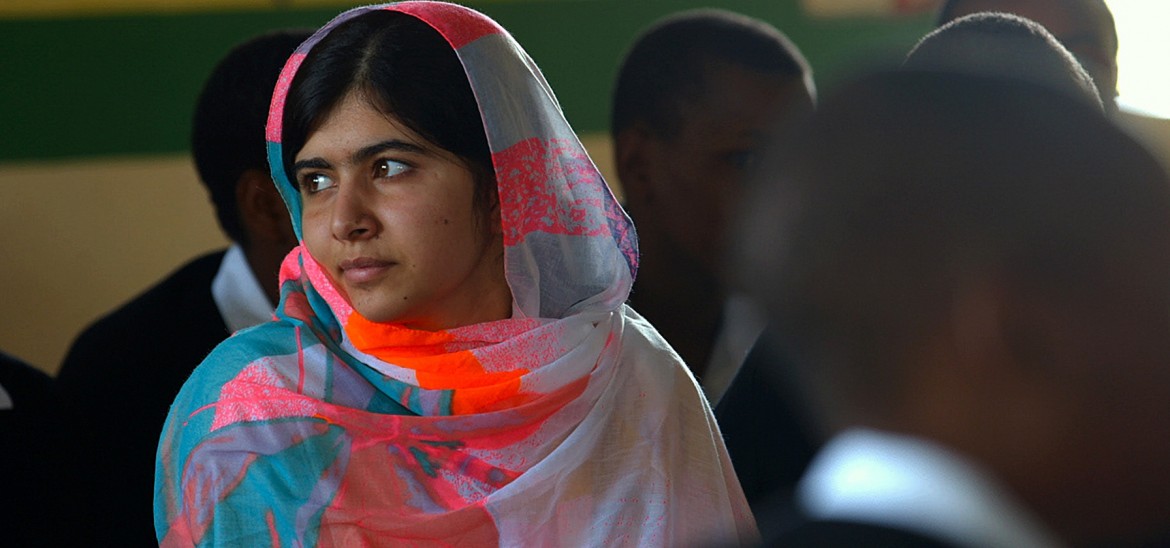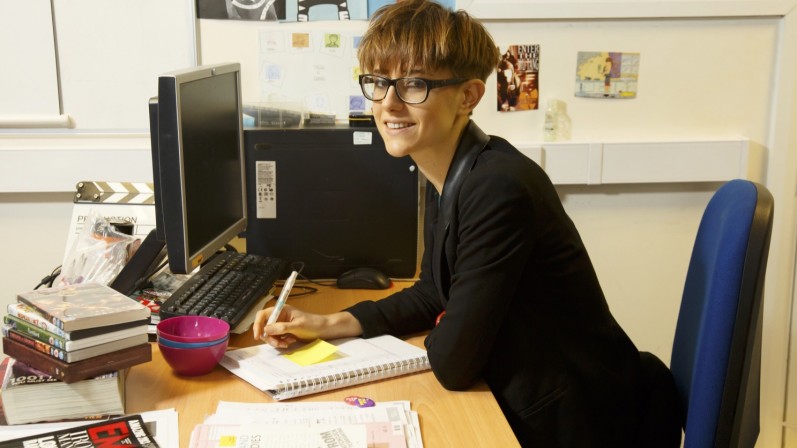Into Film Clubs
Find out everything you need to know about starting an Into Film Club.



The Time Is Now is a season of films that explore and celebrate the role women play in affecting change. Taking place across the country through a series of special screenings, the scheme has been launched to coincide with the release of Suffragette.
In support of The Time is Now season, and to celebrate the release of brilliant new documentary He Named Me Malala, we have put together a series of titles celebrating powerful cinematic examples of women driving positive change. These films from across the world - many of which were also written and directed by women - cover a wide variety of stories and settings, but all are positive, inspiring and empowering.
The Time Is Now website lets you find out more about the project, leave your own responses to the films being screened, find out about events in your local area and even contribute your own material. You will also find out lots more information about the films featured in this series, including behind the scenes interview material, resources and film guides further down the page.
In 2012, Malala Yousafzai, aged just 15, was targeted by Taliban assassins, nearly losing her life, after daring to speak out against the closing of schools to girls in her area. Malala has used her experiences to promote peace and advocate for access to education, especially for girls at risk of being denied this right.
Filmed over 18 months with Malala and her family, this documentary - inspired by the memoir I Am Malala - charts her rise to prominence on the international stage, the reprisals from the Taliban leading to her assassination attempt, and her defiant recovery.
He Named Me Malala was not intended to be a documentary. Producers Walter Parkes and Laurie MacDonald were initially drawn to the mythic qualities of Malala's story, not least the fact that she was named after an Afghani Pashtun female warrior and poetess who was killed for speaking out. However, after meeting with the family, Walter and Laurie were so compelled by their stories and personalities they felt the only way to tell their story would be allowing the audience to get to know Malala herself, both as international stateswoman and everyday teenager. They brought on board director Davis Guggenheim ' best known for environmental documentary An Inconvenient Truth ' to show a side to Malala people had not seen before.
For the filmmaker's, Malala's stories of growing up in Pakistan had a storybook quality to them ' and were so different from the stories often seen in the media from the region ' they saw animation as the perfect way to recapture the memories so crucial to Malala's identity. Davis turned to young animator Jason Carpenter, using state of the art digital equipment, but in ways that aimed to produce the effect of a hand drawing.
School remains Malala's top priority. We see her struggling with homework during the film, as well as campaigning to secure the right to an education for girls worldwide. More than 60 million school-age girls are currently not attending school and the average length of a girl's education in the world's poorest countries is just 3 years. In 70 countries worldwide, girls are threatened with violence just for wanting to go to school. These shocking statistics compelled Malala and Ziauddin to set up the Malala Fund, and empower girls worldwide through education.
Malala's name has taken on a resonance worldwide and become symbolic of the movement as a whole. As Malala herself says ' I'm hopeful that this name will become a symbol of the fight for rights and for education. Something that really inspired me was that after I was attacked in Pakistan, was that girls raised banners that said 'I an Malala.' They were saying 'I'm here to stand up for my rights.' So, it's not just the name of one girl. It's a name that now symbolizes girls speaking out.'
The story of the movement in East London, at a pivotal point where the fight moved from peaceful protest into more direct action. The film is an inspiring, often shocking account of a piece of history that surprisingly has never been told on film before, but remains relevant even to this day.
From newsreel to comedy, this programme taken from the BFI National Archive captures the suffragettes' struggle - and how they so innovatively used film to further it - while also offering a fascinating portrait of British life a century ago.
Marjane is an intelligent young woman whose life is changed by the Islamic Revolution of 1979, finding herself rebelling in a country where rebellion increasingly had no place, especially for girls.
Offside also deals with young women in Iran, desperate to watch a crucial World Cup qualifying match in Tehran, but barred from even entering the stadium. A simple, but provocative film, using humour and warmth to raise important social and political questions.
Jessminder and Jules' shared passion for football brings them together in a local girls' team. However Jess' traditional-minded Indian parents don't approve of such activity - so she spins a series of elaborate yarns in order to not get found out and continue to play.
Tradition causes trouble in a family when a young Maori girl wants to take up what she believes is her rightful place at the head of her tribe - because the man standing in her way is her own grandfather, and his love for her is not enough to change his belief that only a boy could ever lead the tribe.
Thelma and Louise are two working class women planning a weekend away from the men in their lives, which quickly takes a horrible turn. Fleeing for their lives, this iconic film has one of the most discussed endings in cinema history.
Hirut is a bright 14 year-old on her way home from school when she is kidnapped by a would-be husband. Attempting to escape, she mortally wounds the man and finds herself facing the harshest of punishments, until a female lawyer from Addis Ababa takes on her case. Based on a true story.
Spanning three decades, this loving adaptation of anti-war campaigner Vera Brittain's celebrated memoir, offers an important female perspective on the experiences of World War One. It also highlights crucial issues around freedom, independence and education that remain relevant today.
The first film by a female Saudi Arabian director, Wadjda is about an independent minded ten year old girl refusing to be pushed around by adults and their ridiculous? rules. After entering a scripture competition, Wadjda becomes determined to teach the boys a thing or two about what girls can and can't do in a hyper masculine world.
A spirited coming of age story following Marieme, a teenager growing up on the outskirts of Paris with her younger sister and abusive older brother, before falling in with a new gang of friends. These friendships offer escapism, but also force Marieme to question if she will be able to attain the independence she seeks.
Viewing 4 of 4 related items.

Get in touch with your article ideas for the News and Views section.